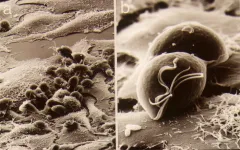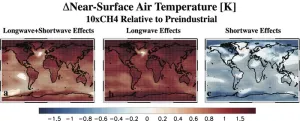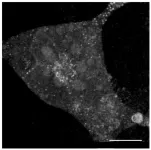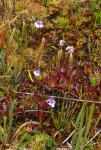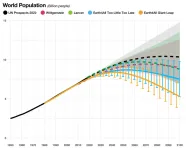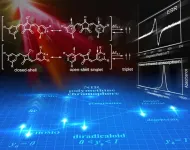(Press-News.org) Social relationships influence physical health, but questions remain about the nature of this connection. New research in Social Psychological and Personality Science suggests that the way you feel about your close relationships may be affecting the way your body functions.
Previous smaller-scale studies have examined the connection between relationship conflict or satisfaction with stress levels and blood pressure. The new research examines the effects of positive and negative relationship experiences on the body, as well as how these experiences and health outcomes change from day to day.
“Both positive and negative experiences in our relationships contribute to our daily stress, coping, and physiology, like blood pressure and heart rate reactivity,” says lead author Brian Don of the University of Auckland. “Additionally, it’s not just how we feel about our relationships overall that matters; the up’s and downs are important too.”
Over the course of three weeks, 4,005 participants completed daily check-ins via their smartphone or smartwatch, providing assessments of their blood pressure, heart rate, stress, coping. Every three days, participants also shared reflections on their closest relationship, detailing their positive and negative experiences.
Researchers found that, on average, people with more positive experiences and fewer negative experiences reported lower stress, better coping, and lower systolic blood pressure reactivity leading to better physiological functioning in daily life. By contrast, variability – or daily ups and downs – in negative relationship experiences like conflict were especially predictive of outcomes like stress, coping, and overall systolic blood pressure.
Dr. Don notes that one broader implication of this study is that it is important to consider how outside stressors – such as the COVID-19 pandemic – can affect people’s relationships, and therefore their physical health.
“Since the COVID-19 pandemic, relationships have been facing unprecedented challenges, turbulence, and change,” says Dr. Don. “What this means is that the COVID pandemic may have health implications not just because of the virus itself, but also indirectly as a result of the impact it has on people's relationships. That is, because the COVID-19 pandemic has created considerable strain, turbulence, and variability in people's relationships, it may indirectly alter stress, coping, and physiology in daily life, all of which have important implications for physical well-being.”
Researchers cautioned against interpreting the study as proof that relationship experiences have physiological effects. Instead, the findings contain associations from daily life that illustrate how relationships and physical health are often intertwined. Causal conclusions, Dr. Don says, must be reserved for experimental studies.
In the future, Dr. Don suggests that researchers look beyond outcomes like blood pressure and heart rate reactivity to gain a fuller understanding of how relationships may affect health.
“It would be useful to examine other physiological states, such as neuroendocrine or sympathetic nervous system responses as outcomes of daily positive and negative relationship experiences, which may reveal different patterns of associations.”
END
Positive experiences in close relationships are associated with better physical health, new research suggests
2023-03-27
ELSE PRESS RELEASES FROM THIS DATE:
Research may speed identification of patients who need liver transplants
2023-03-27
Research findings from Rutgers, the University of Michigan, the University of Texas Southwestern, and the Medical University of South Carolina could save lives by enabling faster and more accurate identification of hospitalized patients who need liver transplants or are likely to recover.
Retrospective analysis of blood samples and medical records from 270 patients admitted to the hospital with acute liver failure (ALF) found that concentrations of a short-lived but abundant serum protein called carbamoyl phosphate synthetase 1 (CPS1) helped predict which patients survive or die without a transplant.
“We still need to validate these results in more patients to ...
Finger-prick test developed for ‘trich’ a common, undiagnosed STI
2023-03-27
PULLMAN, Wash. – A quick, affordable diagnostic test developed by a Washington State University researcher may help curb one of the most prevalent but least discussed sexually transmitted infections.
More common than chlamydia or gonorrhea, Trichomonas vaginalis, also known as trich, causes no symptoms in about 70% of those infected. Even when asymptomatic, trich is linked to a host of bad health outcomes, including increased susceptibility to HIV, prostate cancer in men and infertility and pregnancy complications in women.
Trich is easily ...
Surprise effect: Methane cools even as it heats
2023-03-27
Most climate models do not yet account for a new UC Riverside discovery: methane traps a great deal of heat in Earth’s atmosphere, but also creates cooling clouds that offset 30% of the heat.
Greenhouse gases like methane create a kind of blanket in the atmosphere, trapping heat from Earth’s surface, called longwave energy, and preventing it from radiating out into space. This makes the planet hotter.
“A blanket doesn’t create heat, unless it’s electric. You feel warm because ...
A puff of air could deliver your next vaccine (video)
2023-03-27
INDIANAPOLIS, March 27, 2023 — Nobody likes needles, but they’re necessary for delivering many vaccines and biologics into the body. But what if those could be puffed through the skin instead, with just a little pressure, like being hit in the arm with a foam toy? Today, scientists report steps toward making that a reality. Using powdered vaccines that don’t require refrigeration and a system driven by compressed gas, their “MOF-Jet” could easily deliver therapeutics against cancer and other diseases in a relatively painless way.
The researchers will present their results at the spring meeting of the American Chemical Society (ACS). ACS ...
Human cells help researchers understand squid camouflage
2023-03-27
INDIANAPOLIS, March 27, 2023 — Squids and octopuses are masters of camouflage, blending into their environment to evade predators or surprise prey. Some aspects of how these cephalopods become reversibly transparent are still “unclear,” largely because researchers can’t culture cephalopod skin cells in the lab. Today, however, researchers report that they have replicated the tunable transparency of some squid skin cells in mammalian cells, which can be cultured. The work could not only shed light on basic squid biology, but ...
Genetic tests unexpectedly find genes linked to heart disease — now what?
2023-03-27
Statement Highlights:
As health care professionals, researchers and consumers increasingly use genetic testing, they are uncovering incidental genetic abnormalities, or variants, that are associated with cardiovascular diseases.
The statement writing committee cautions that incidentally identified single gene variants may or may not be risk factors for disease, so it is important to interpret them correctly and cautiously.
The new scientific statement offers a framework to support health care professionals in appropriately assessing individual genetic variants, communicating findings with patients and families, and, when ...
Biochar and energy from pyrolysis can pave the way for carbon-neutral agriculture in China
2023-03-27
Since the Paris Agreement to combat global warming was reached in 2015, many countries have committed to becoming climate neutral, i.e., achieving net-zero greenhouse gas emissions. The world's largest agricultural country, China, is also committed to join the green transition. As the largest agricultural country, China is also the world's biggest emitter of greenhouse gases, yet it has set itself a target of achieving carbon neutrality by 2060.
According to Professor and Head of Land-CRAFT at Department of Agroecology at Aarhus University Klaus Butterbach-Bahl, this places huge demands on agricultural systems: "Agriculture in China accounts ...
Two striking new species of carnivorous plants discovered in the Andes of Ecuador
2023-03-27
A team of botanists from Ecuador, Germany, and the United States has described two new species of carnivorous plants with striking appearance. They are part of the butterworts (genus Pinguicula), a group of flowering plants with about 115 species that can catch and digest small insects with their sticky leaves. Whereas the majority of butterwort species is distributed in the northern hemisphere, these new species were discovered in the high Andes of southern Ecuador, close to the border with Peru.
Carnivorous plants use animals (usually small insects) as an additional source of nutrients ...
Global population could peak below 9 billion in 2050s
2023-03-27
The new projection is significantly lower than several prominent population estimates, including those of the United Nations. The researchers go further to say that if the world takes a “Giant Leap” in investment in economic development, education and health then global population could peak at 8.5 billion people by the middle of the century.
The new projections by researchers from the Earth4All initiative for the Global Challenges Foundation is published as a working paper People and Planet, 21st Century Sustainable Population Scenarios and Possible Living Standards Within Planetary Boundaries.
The team used a new system ...
Looking from different perspectives! Proper electronic structure of near-infrared absorbing functional dyes discovered
2023-03-27
Near-infrared light, whose wavelength is longer than visible light, is invisible and can pass through many substances. Organic materials that efficiently absorb near-infrared light are essential for technological innovations that utilize near-infrared light, such as the dyes in the infrared blocking filters of smartphone cameras and security inks. These and many more technical applications make developing new dyes that can absorb longer wavelengths of near-infrared light desirable.
Previously, near-infrared absorbing organic materials were treated as closed-shell molecules without unpaired electrons. However, a joint research group led by Associate Professor Takeshi Maeda, Assistant Professor ...
